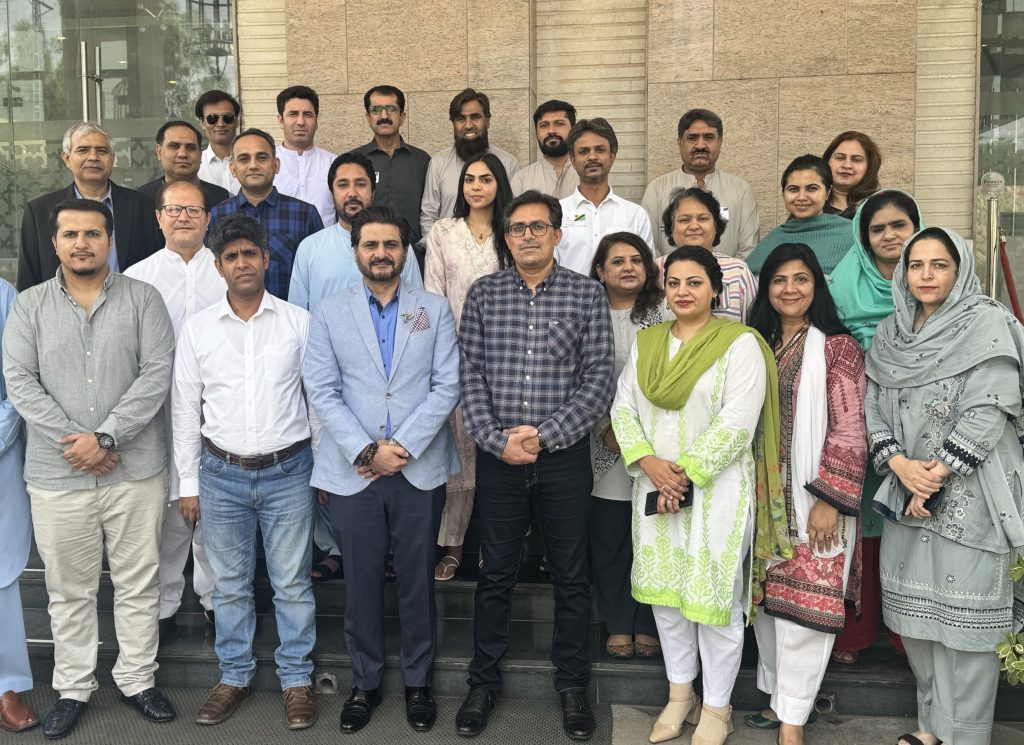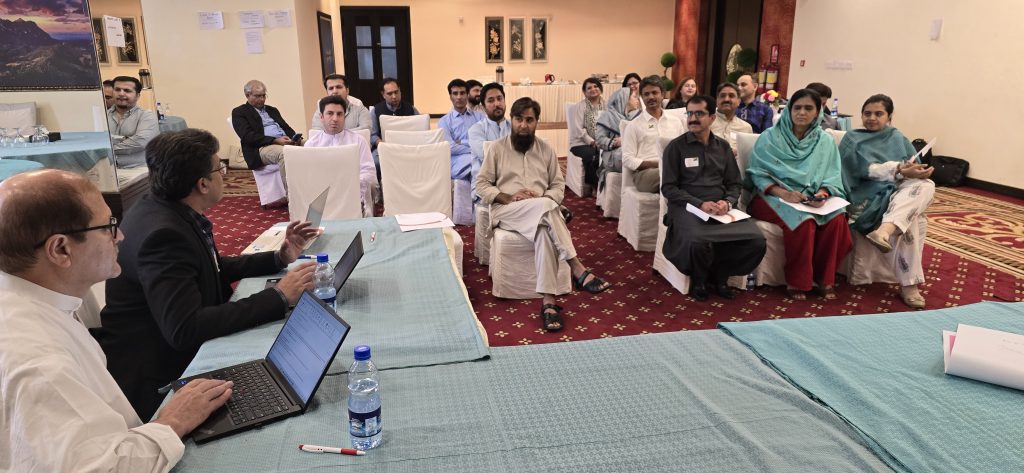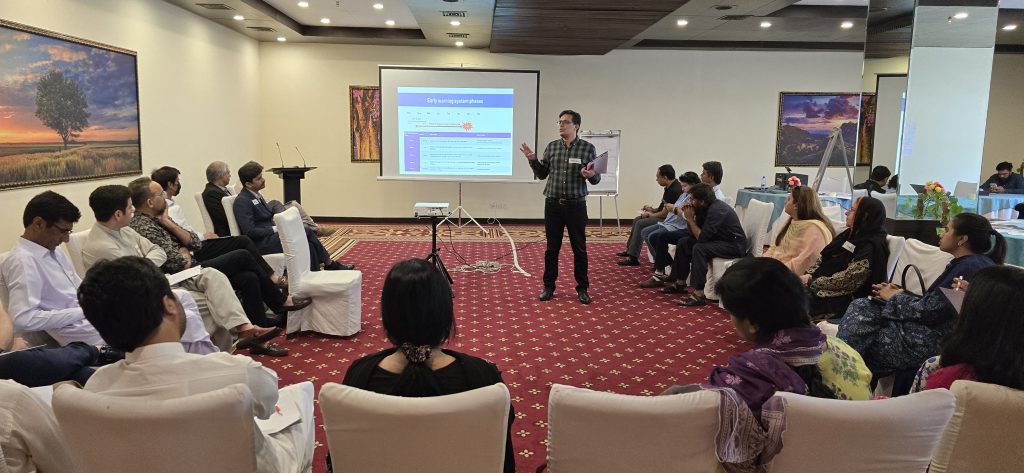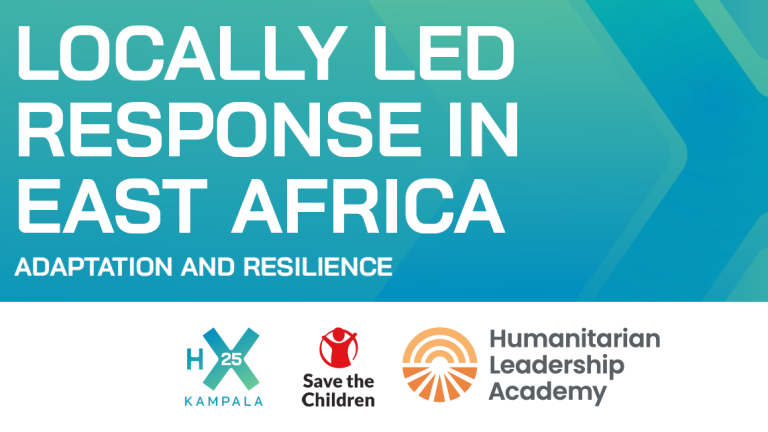The HLA Asia Pacific Regional Centre has recently delivered crucial capacity strengthening training to equip Save the Children Pakistan and key partner staff with the skills necessary to support climate-induced emergency responses across the country.
Taking place in Islamabad between 25-28 June, the four-day Humanitarian Operational Programme (HOP) Core programme was led by Asad Zia Iqbal, the HLA’s Asia Regional Humanitarian Capacity Building Lead, with the support of two of the HLA’s HOP master trainers who were successfully trained in 2023.
The 24 training participants – including 10 women and 14 men – represented a diverse range of roles from executive directors to officers, and are either new to humanitarian efforts or this was their first experience of formal humanitarian training.

Asad Zia Iqbal, together with co-facilitators Farman Khan and Sehar Taimoor from Save the Children Pakistan, delivered a comprehensive and tailored face-to-face workshop format with a desk-based simulation.
The training curriculum was contextualised and tailored for this cohort following a comprehensive training needs assessment which identified knowledge, skills, and competency gaps.
The training covered a comprehensive range of topics including an introduction to humanitarian aid; wellbeing in emergencies; needs assessments; accountability to affected populations; gender equality in emergencies; and proposal writing.
A notable feature of the training was a two-day desk-based simulation focused on flooding scenarios, providing participants with a practical, hands-on approach to applying their newly acquired skills. This innovative training method received positive feedback, especially from those who had never experienced simulation-based training before.

Anticipating climate-induced emergency response: upskilling and preparing Save the Children and partner staff
This initiative forms part of the HLA’s Resilience pillar work by the HLA in partnership with Save the Children, Pakistan, and builds on recent capacity strengthening and emergency preparedness planning work led by Asad Zia Iqbal across the region.
Pakistan has been dealing with the impacts of extreme weather-related events. In 2022, floods in Pakistan affected approximately 33 million people including 16 million children. The country received more than three times higher than national 30-year average rainfall resulting in catastrophic floods across four provinces.
This year, country is anticipating similar patterns of heatwaves and climate-induced rainfall and flooding. Against this backdrop, it was also imperative to upskill partners’ staff as the Save the Children Pakistan Country Office mainly implements its emergency projects with the support from local partners at the grassroots level.
Reflecting on this HOP Core training in Islamabad, Asad Zia Iqbal remarked:
“The need for this training was highlighted by the country teams during flood response in 2022 for the first time, and this came very strongly during the Emergency Preparedness Planning process in mid-2023. I was therefore pleased to be able to work together with co-facilitators to deliver this iteration of HOP Core training for Save the Children Pakistan and partners in Islamabad to strengthen humanitarian response to climate-induced emergencies in anticipation of future responses required.”

Sehar Taimoor, Co-facilitator for the HOP Core training reflected:
“Delivering the HOP for Save the Children Pakistan colleagues and partners was an exciting opportunity. The best part was hearing feedback from colleagues who mentioned that they now fully understand the humanitarian cycle. The team was energetic and collaborative, and I felt greatly satisfied disseminating what I learned from the HLA.”
Next steps
The HLA’s Asad Zia Iqbal continues to roll out HOP Core training across the region with the support of the cadre of HOP trainers, most recently in Nepal. Plans are also underway to deliver training in Bangladesh in August.
The HLA Asia Pacific Regional Centre would like to thank Save the Children Pakistan Country Office colleagues who helped make this training possible. The collaborative effort of teams ensured that the training objectives were met, preparing the participants for future humanitarian challenges.


